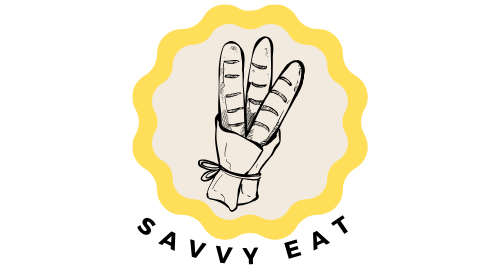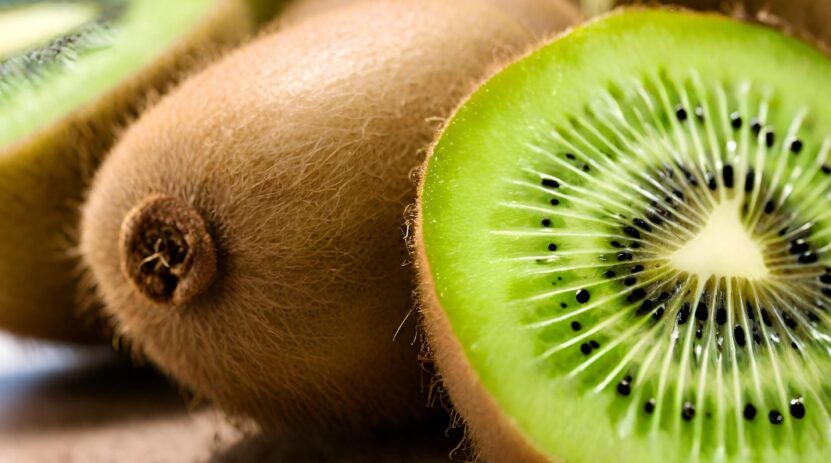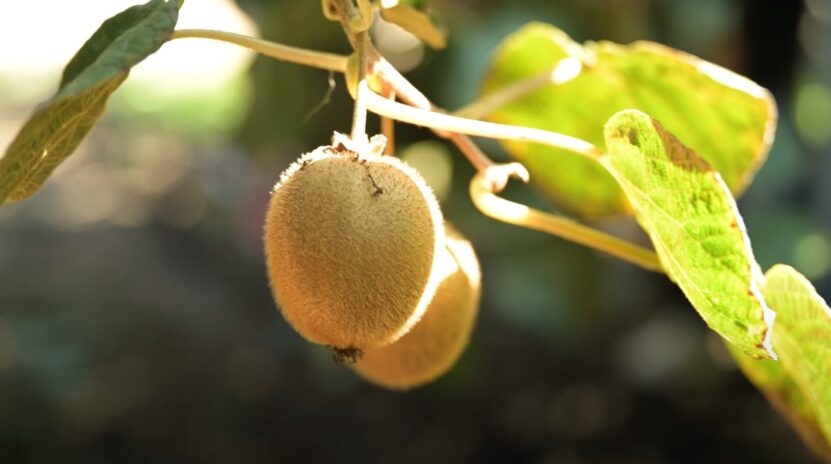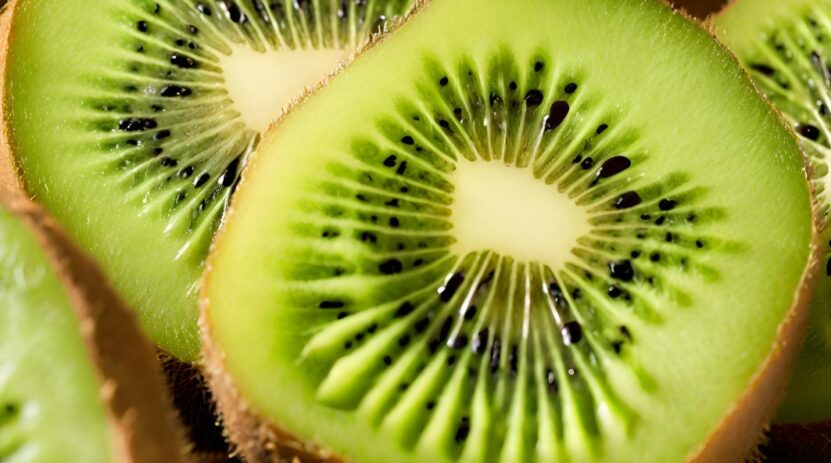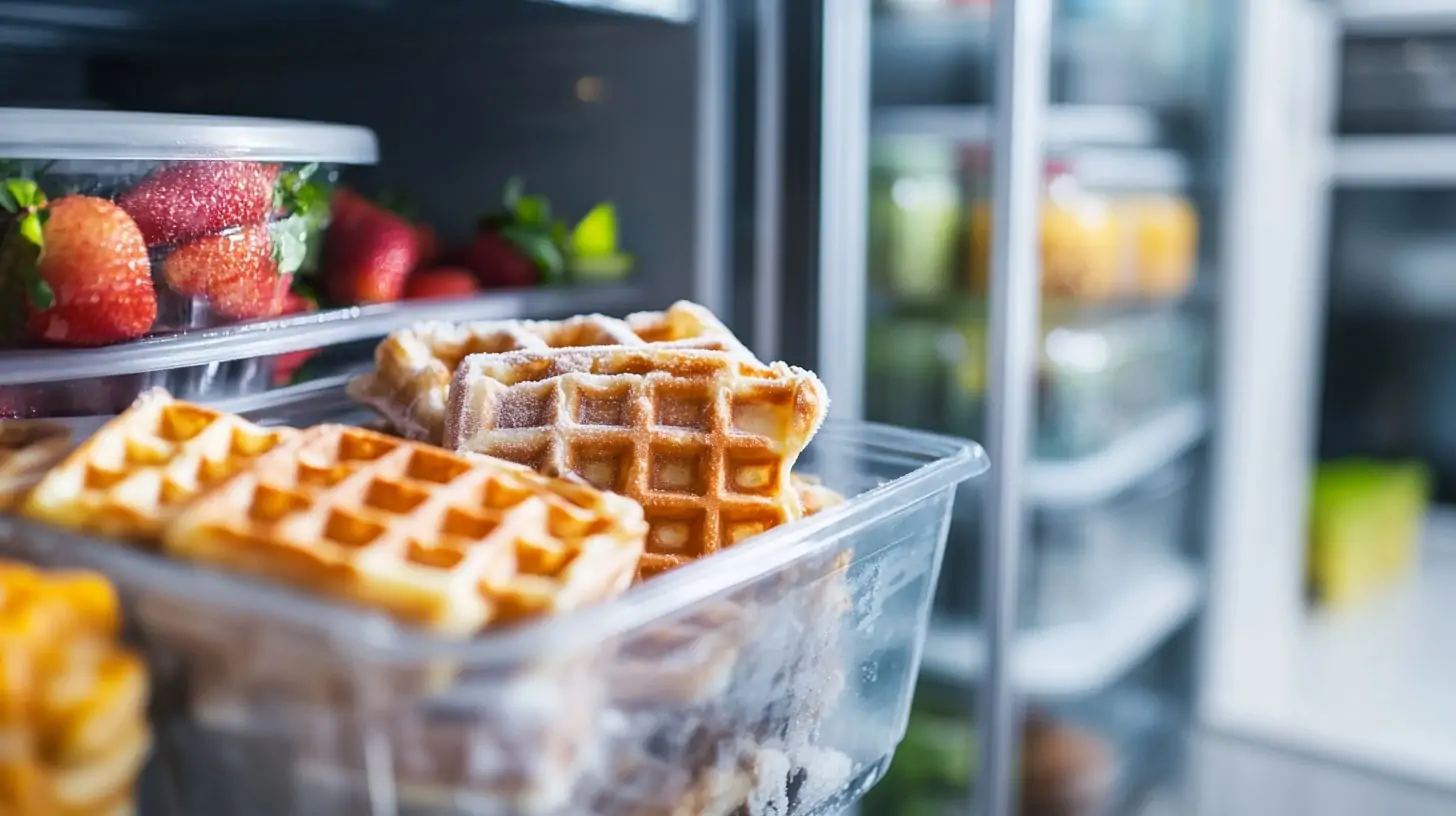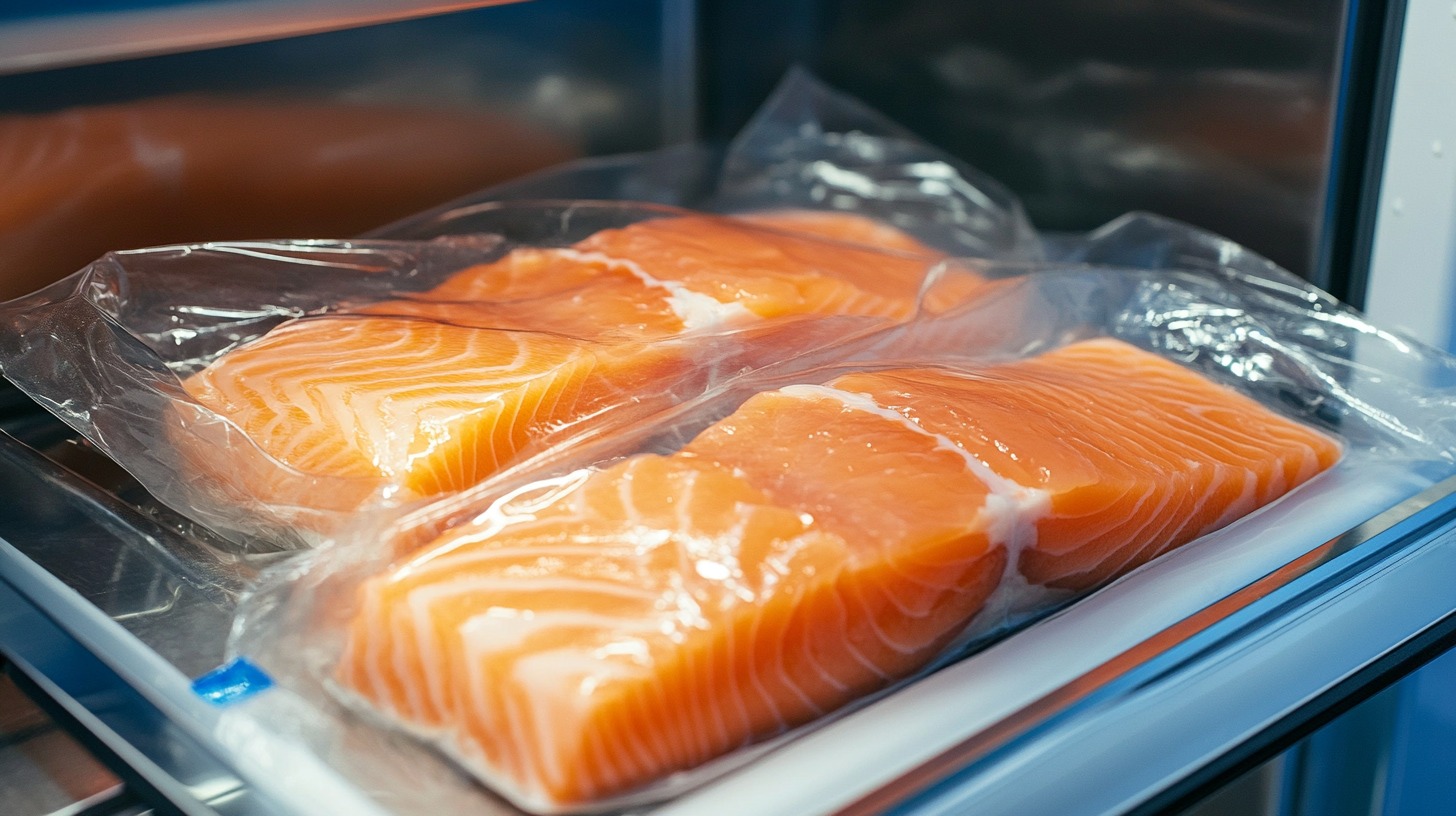
Share Post:
Have you ever wondered if it’s safe to eat kiwi seeds? This is a common question, especially for those who love this tangy and nutritious fruit. In this post, we’ll explore whether kiwi seeds are safe to eat or if they pose any health risks.
Key Takeaways
- Kiwi seeds are perfectly safe to eat for most people, containing no toxic substances and offering a boost to the fruit’s nutritional profile.
- They are a source of essential nutrients such as omega-3 fatty acids, which support heart health and reduce inflammation; fiber, which promotes a healthy digestive system and regulates blood sugar levels; and Vitamin E, which protects the skin from damage and boosts the immune system.
- Kiwi and its seeds can be a versatile addition to the diet, eaten whole or used as a nutritional enhancement in smoothies, yogurts, cereals, and salads, offering a range of health benefits from cardiovascular support to improved digestive health.
Should You Eat Them?
The short answer is yes, kiwi seeds are perfectly safe to eat. They are not toxic and are a natural part of the kiwi’s unique profile. In fact, eating the seeds along with the flesh can enhance the fruit’s nutritional value.
The seeds add a slight crunch, contributing to the overall sensory experience of eating kiwi. It’s important to understand the whole picture to fully appreciate the safety and benefits of kiwi seeds.
Nutritional Profile
Kiwi seeds are a treasure trove of essential nutrients.
| Nutrient | Benefits |
|---|---|
| Omega-3 Fatty Acids | Maintain heart health, reduce inflammation |
| Fiber | Promote a healthy digestive system, regulate blood sugar levels |
| Vitamin E | Protect skin from damage, boost immune system |
Can Everyone Eat Kiwi Seeds?
While kiwi seeds are safe for the majority of people, certain groups should exercise caution. Allergies to kiwi, including reactions to its seeds, can occur in some individuals. These allergies can manifest in various forms and should be taken seriously.
People with sensitive digestive systems or specific digestive disorders might also find kiwi seeds to be a bit irritating, although this is rare. It’s always best to listen to your body and consult with a healthcare provider if you have any concerns.
How to Know if You’re Allergic?
Identifying an allergy to the seeds can be tricky, as the symptoms are similar to other food allergies. These can range from mild itching and swelling to more severe digestive distress. If you notice any adverse reactions after consuming kiwi, it’s crucial to stop eating the fruit and seek medical advice.
A healthcare professional can provide proper diagnosis and guidance on managing such allergies.
The Myth of Toxicity
The misconception about the toxicity of kiwi seeds has no scientific backing. Unlike some other fruit seeds, kiwi seeds are completely safe and do not contain any harmful substances. This myth may have arisen due to general caution around seeds from other fruits, but it does not apply to kiwi.
Why the Confusion?
The confusion regarding the safety of kiwi seeds likely stems from general warnings about other fruit seeds. For instance, apple and cherry seeds contain cyanogenic compounds, which can be harmful in large quantities.
However, these seeds do not contain such compounds, making them entirely safe for consumption. It’s important to distinguish between different types of fruit seeds and their specific properties.
Benefits of Eating the Seeds
Eating kiwi seeds offers a range of health benefits. The omega-3 fatty acids in these seeds are essential for cardiovascular health and can aid in reducing heart disease risk. Fiber is crucial for digestive health, helping to prevent constipation and maintain a healthy gut.
The antioxidant properties of Vitamin E in kiwi seeds also help in combating oxidative stress, supporting overall health and well-being.
Always keep in mind that just as maintaining a balanced diet is crucial for health, preserving the freshness of our dietary staples is equally important for ensuring we enjoy their full nutritional benefits.
How to Incorporate Them into Your Diet?
Kiwi, along with its seeds, can be a versatile addition to any diet. The seeds are small enough to be eaten whole and do not require removal. They add a delightful texture to the fruit, enhancing the eating experience.
Eating the fruit whole, including the skin, is another way to maximize its nutritional benefit, as the skin is also rich in nutrients.
FAQs
Can kiwi seeds help with weight management?
Yes, they can assist in weight management due to their high fiber content. Fiber helps in keeping you fuller for longer periods, potentially reducing overall calorie intake and aiding in weight management.
Do kiwi seeds have any anti-aging properties?
They contain antioxidants, including Vitamin E, which can help combat the effects of aging by protecting the body from oxidative stress and promoting skin health, potentially reducing the appearance of wrinkles and fine lines.
Can consuming kiwi seeds improve hair health?
The omega-3 fatty acids found in kiwi seeds may contribute to improved hair health by providing nourishment to the hair follicles, promoting scalp health, and potentially leading to shinier, healthier hair.
Are there any benefits of kiwi seeds for athletes or people with an active lifestyle?
Yes, for athletes or physically active individuals, kiwi seeds offer benefits such as improved cardiovascular health thanks to omega-3 fatty acids, and better muscle recovery and energy levels due to their nutrient-rich profile, including antioxidants and fiber.
How do kiwi seeds affect blood sugar levels?
They can have a positive effect on blood sugar levels due to their fiber content. Fiber slows down the absorption of sugar into the bloodstream, helping to regulate blood sugar levels and prevent spikes after meals.
Is there a recommended daily intake of kiwi seeds to achieve health benefits?
There isn’t a specific recommended daily intake for kiwi seeds alone, but incorporating kiwi fruit, including the seeds, into your daily diet can contribute to the overall intake of essential nutrients. Moderation is key, as with all dietary components, to ensure a balanced intake of nutrients.
The Bottom Line
Kiwi seeds are not only safe to consume but also offer a plethora of health benefits that enhance the nutritional value of this vibrant fruit. From their rich omega-3 fatty acid content to the essential fiber and Vitamin E they provide, kiwi seeds are small powerhouses of nutrition.
While it’s important to be mindful of potential allergies and listen to your body’s reactions, for most people, the inclusion of kiwi seeds can be a delightful and beneficial addition to a well-rounded diet.

